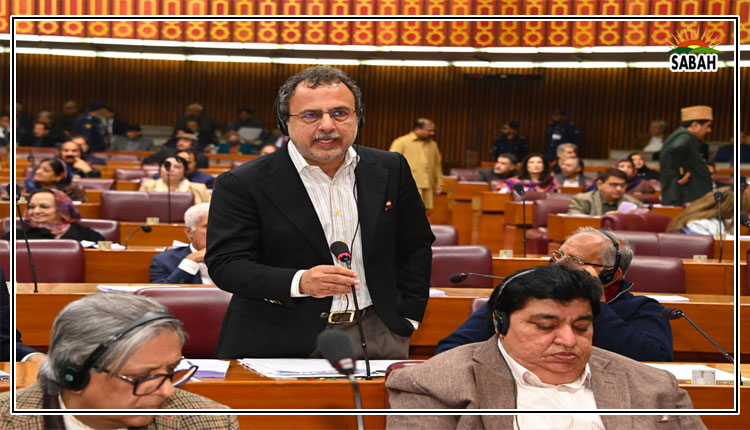Killer digital lending platforms… Mohsin Saleem Ullah
Pakistan is famous for blanket bans on technologies and online digital platforms, a pattern we have seen numerous times when social media giants like Facebook, YouTube and TikTok fail to comply with the instructions of PTA.
The regulator loves playing a big brother role by controlling what Pakistani viewers can watch. Given this obsession, one may think why the regulator took forever to ban digital loan sharks when many working and middle-class families are falling prey to them as they lure customers by misleading advertisements on social media that they offer instant loans and charge the lowest interest rates without proper credit checks or documentation, which is too-good-to-be true. However, beneath the veneer of convenience lies a web of exorbitant interest rates, hidden fees and aggressive collection practices. These exploitative digital platforms have emerged as a significant threat to Pakistans financial landscape, as they operate under the guise of digital lending platforms. And without proper regulatory oversight, they prey on individuals facing financial hardships, leading them into a vicious cycle of debt and despair. The rise in loan shark apps in Pakistan has inflicted untold misery upon the lives of the countrys poor and vulnerable population desperate for immediate cash. The several reported cases include the recent death of a man who attempted self-immolation outside the Karachi Press Club, and the case of a father of two from Rawalpindi who hanged himself from the ceiling at his house. Both were hounded by lenders to face dire consequences in case of their failure to repay the excessive interest on a loan they had borrowed from the loan sharks.
The loan shark apps exploitative tactics extend beyond monetary exploitation. Borrowers frequently endure harassment, intimidation and threats from debt collectors, pushing them further into distress and psychological anguish. Its appalling to know that installing loan shark apps provides unscrupulous digital lenders unauthorised access to personal information, photos, contacts and other sensitive information stored on the cellphone of a borrower which they use as a high-pressure tactic to intimidate borrowers who might be reluctant to repay the loan. Having unauthorised access to any data with dishonest intentions is a punishable offence under section 3 of the Prevention of Electronic Crimes Act, 2016. But, as always FIA is swamped with a plethora of political victimisation cases, with no time to probe culprits behind loan sharks and put these exploitative enterprises out of business. As the crisis deepens, urgent government intervention is needed to curb the proliferation of these harmful apps and protect the welfare of its citizens.
Undoubtedly, the regulatory framework in our country has failed to monitor these dubious operators. Mere circulars of the SECP, prohibiting all digital lending platforms from making debt recoveries from their borrowers through coercive measures or shifting personal info of the customers outside Pakistans legal jurisdiction, is not sufficient. There are many rigorous measures both PTA and SECP could take by collaborating with the SBP and FIAs cybercrime wing to tackle the proliferation of illegal digital lending platforms. Some immediate steps could be: initiating a public awareness campaign about the risks associated with loan shark applications and the importance of using legitimate financial channels, and citizens being empowered to identify and report fraudulent lenders on a dedicated anti-fraud helpline of FIA. Secondly, with the evolution of e-commerce, more people are opting for digital solutions for their personal finance needs, so the government should introduce national-level specific legislation to combat illegal money lending, including loan shark apps. This legislation should define and criminalise exploitative lending practices, imposing severe penalties on violators.
By enacting comprehensive legislation, enforcing financial regulations and promoting financial inclusion, we can create a safer and more equitable financial ecosystem for all its citizens.
Courtesy The Express Tribune












